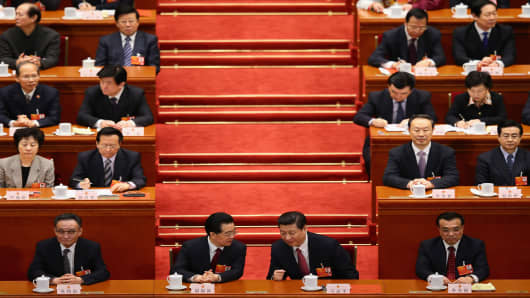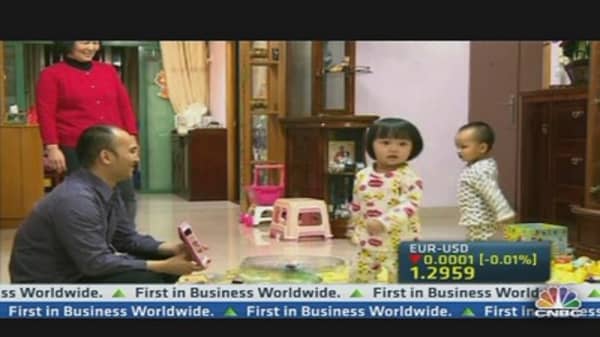Xi Jinping officially became China's new president on Thursday, ending a once-in-a-decade transition of power that began at last November's Communist Party National Congress.
Yet much has happened in the months since then, highlighting the challenges that Xi and the new leadership team now face.
At home, inflation is running at its highest level in 10 months posing a headache for policy makers amid signs of an uneven economic recovery, while news this week of 6,000 rotting dead pigs in a river that supplies tap water to Shanghai comes at a time of growing public discontent over pollution.
Trouble is also brewing overseas – the U.S. on Monday demanded that China must stop the hacking of U.S. computer networks and Beijing faces pressure to rein in long –time ally and neighbor North Korea, which has been escalating its war of words with South Korea.
(Read More: South Korean Stocks Whacked as War Threat Looms)
"Short-term there is not a great deal of change that will happen, but we should see some diplomatic issues come to the fore," said Paul Krake, founder of the consultancy View from the Peak: Macro Strategies.
"Cyberattacks are going to be a massive issue going forward," Krake added. "If I'm the Americans, I'm really pissed off. There's no doubt that this stuff is going on. This won't be addressed now but when there is a first meeting between Xi Jinping and [U.S. President Barack] Obama, at some stage in the next two years, then that's going to be the elephant in the room."
Both Washington and Beijing have accused each other of the theft of data from computer networks, in an issue that has increasingly grabbed the headlines in recent months.
(Read More: The Next Cyber War Is Already in Progress: Security Expert)





